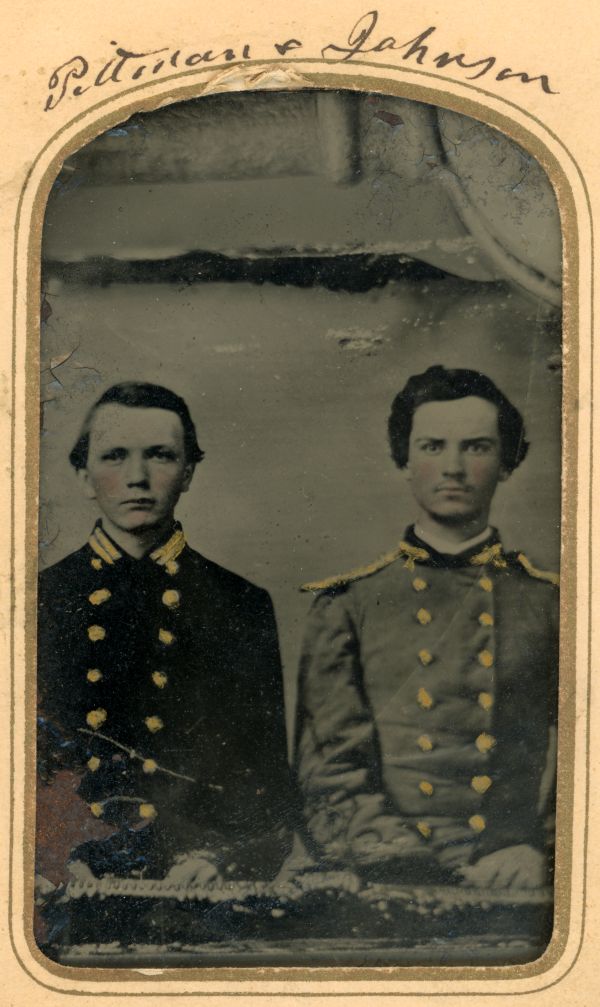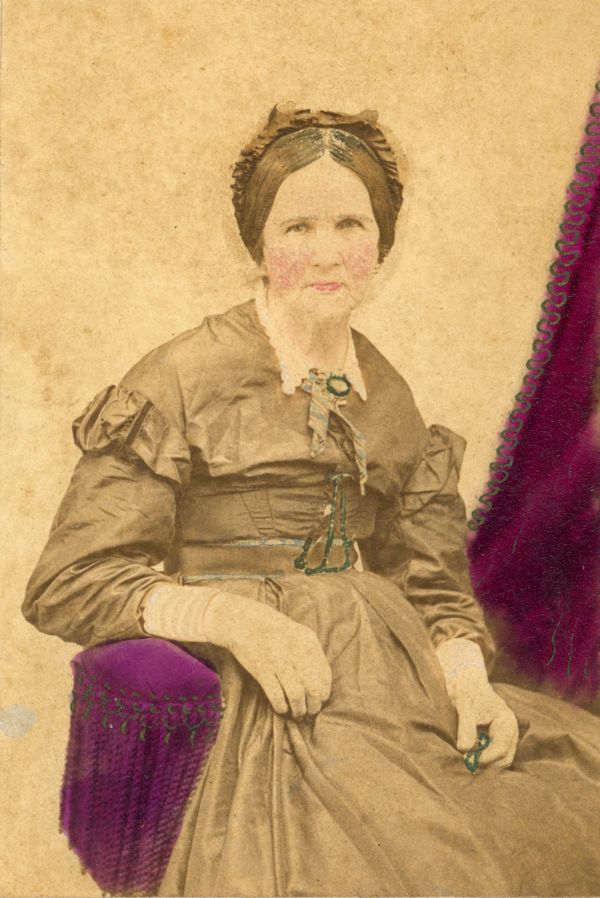Description of previous item
Description of next item
Death and Mourning in the Civil War
Published August 8, 2012 by Florida Memory
Death was the real victor of the Civil War. Most families, especially in the South, lost a father, brother, son, or knew relatives and neighbors who lost a loved one. By the summer of 1862, the death toll was so overwhelming that whole communities were constantly draped in black. The Tallahassee Florida Sentinel was concerned that continual public mourning was weakening the Confederate economy:
"When so many households throughout the South are called upon to mourn the loss of Dear ones, the custom of wearing mourning clothes adds greatly to our expenditure and detracts to that extent from our ability to maintain this unequal struggle. It is unnecessary to remark that such goods are now very scarce, and costly, and many are compelled, in obedience to custom, to make sacrifices which they cannot well afford."
Although the pervasiveness of death made all Americans citizens of what historian Drew Gilpin Faust has called "the Republic of Suffering," shared grief could not relieve the pain of surviving family members, especially parents who lost a son.
Martha Pittman of Marianna, Florida, lost her only surviving son, John D. Pittman, on August 31, 1862, when he died of wounds received in the previous day's fighting during the Battle of Second Manassas (Second Bull Run). John, a student at the University of Virginia when the war began, remained in school until March 1862, when he wrote to his mother that he had decided to leave the university and join the army "now that the South is in her greatest danger." (The Confederacy had recently lost the battles of Forts Henry and Donelson in Tennessee.)
John returned to Florida and enlisted in Marianna, joining the newly formed Eighth Florida Infantry Regiment in May 1862. His unit joined the Florida Brigade in the Army of Northern Virginia, which in August moved against the Army of the Potomac occupying positions near the old Bull Run battlefield. The only casualties suffered by the Florida Brigade, which was part of the Confederate reserve, came as a result of Union artillery fire on August 30. Unfortunately, Pittman, who had not even reached his 20th birthday, was among those few Florida wounded. He died in a field hospital the next day.
Upon John's enlistment, Martha already mourned losing her son to war. She composed a poem "To Her Son," writing it on a blank page in the student autograph book that John had brought with him from Virginia:
"Mother sorrowing over her son
But give him up to defend his Country
Whose dear heart is made sad,
By the Dear Son bravely gone
Mother praying for her Son
Who was all her pride and story?
Sister mourns a dear one gone
A Brother called to take up arms
Mother weeping? Over thy Son
Dearer than thyself to thee;
Will (all) by death left desolated
Tell me is it well with you
Yes tis well with the loved and lost
And not lost to us forever;
They have but before us crossed
Over the deep and shadowy river
May 27 1862 M P"
The editorial from the Florida Sentinel was first quoted in Florida A Hundred Years Ago (Samuel Procter, ed. 1963). The Pittman letter and poem are part of the Blackshear, Pittman, White, Dickens, and Drew Families Papers at the State Archives of Florida (Collection N2005-9).
Cite This Article
Chicago Manual of Style
(17th Edition)Florida Memory. "Death and Mourning in the Civil War." Floridiana, 2012. https://www.floridamemory.com/items/show/255131.
MLA
(9th Edition)Florida Memory. "Death and Mourning in the Civil War." Floridiana, 2012, https://www.floridamemory.com/items/show/255131. Accessed October 13, 2025.
APA
(7th Edition)Florida Memory. (2012, August 8). Death and Mourning in the Civil War. Floridiana. Retrieved from https://www.floridamemory.com/items/show/255131

 Listen: The Folk Program
Listen: The Folk Program
